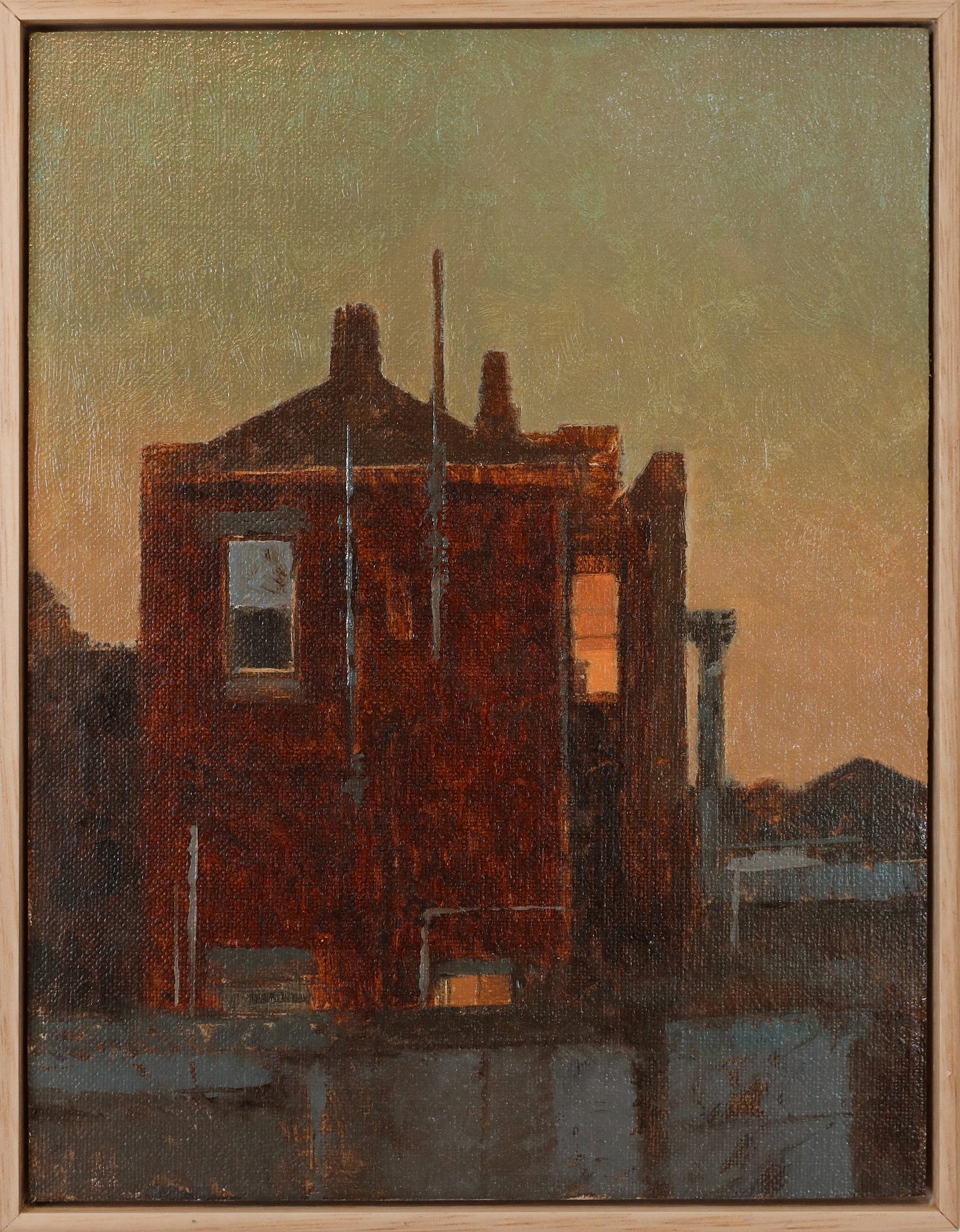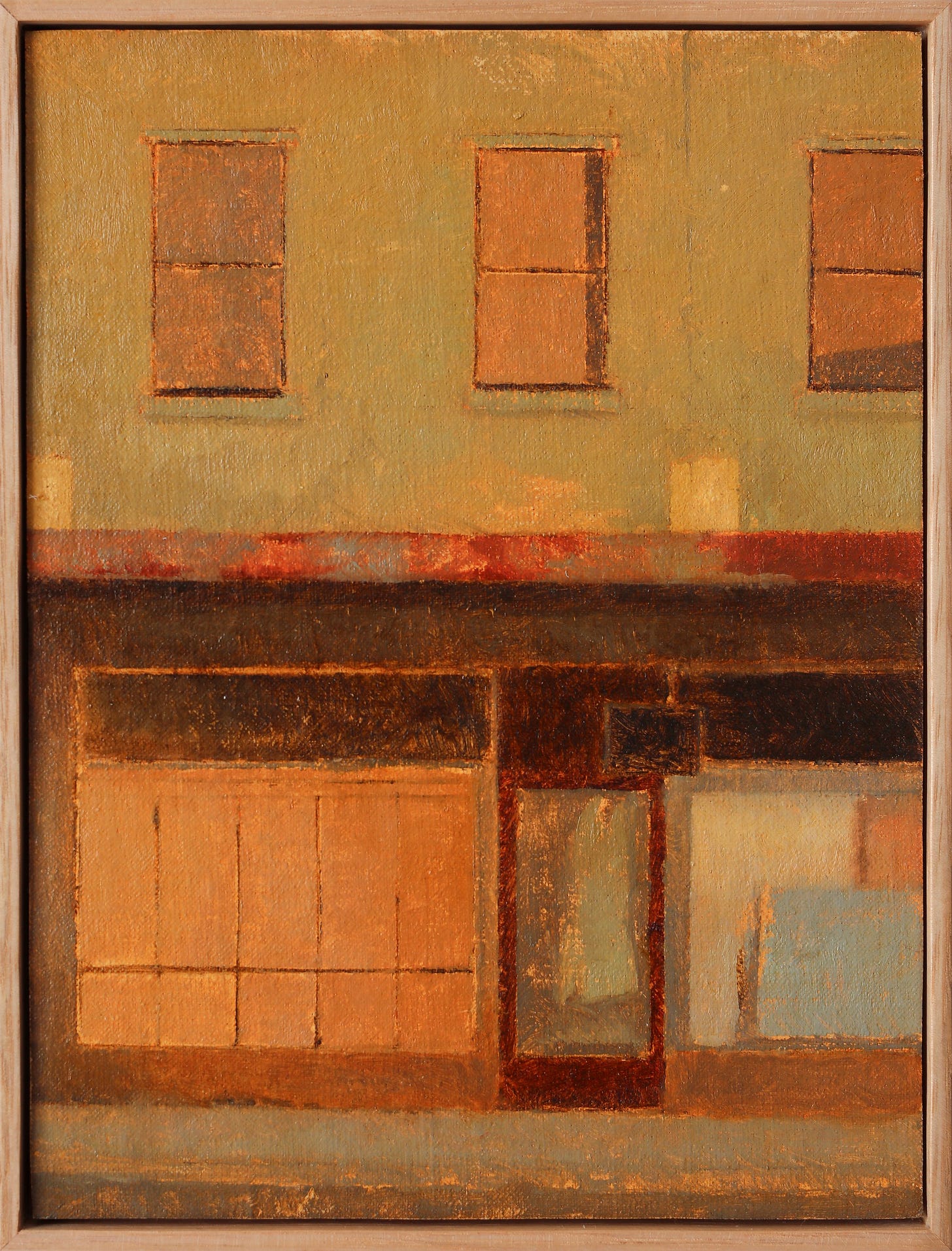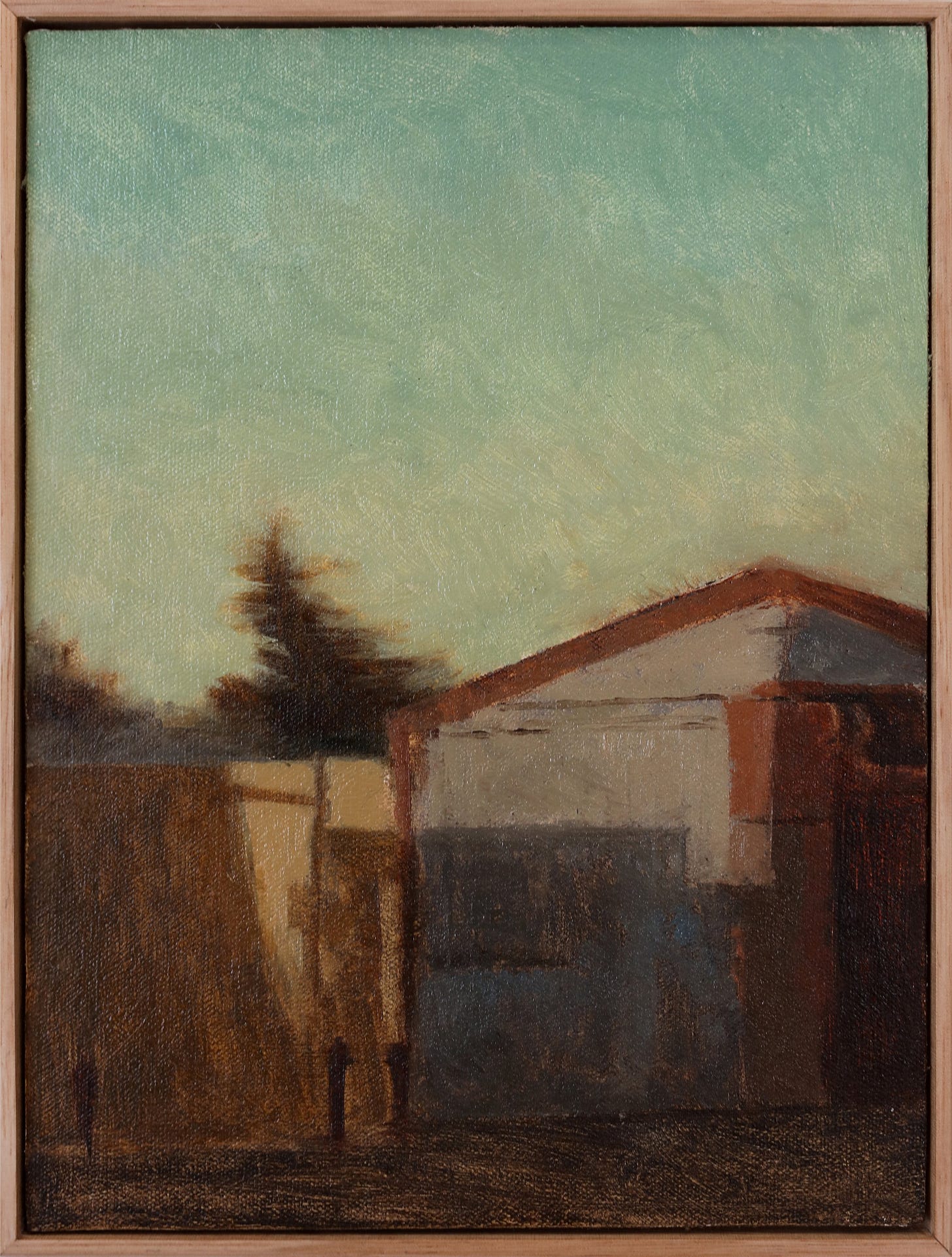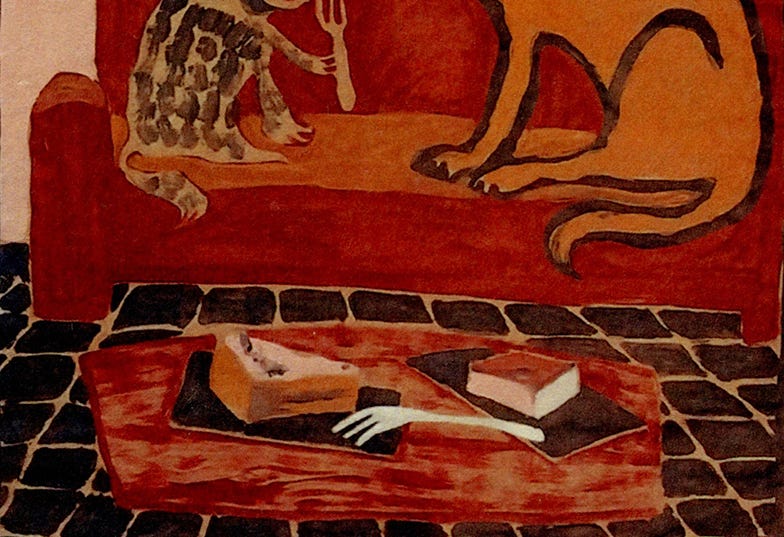No.248
Two years ago I wrote of this month: “It’s November and the afternoons draw towards darkness so quickly, what else can be said about it.”
Though there is more to be said about it, as it turns out, at least in this moment (perhaps not in others, later). There is death on the trees and a collection of fallen, sugary leaves a foot or two deep lying at the bottom of the river which, if you dare to enter skin and limbs, seem wanting to envelop you entirely. On the night of an October storm the high winds pulled the trees half-bare in a matter of hours, a few of the roads around the town temporarily turned from tarmac to gold—now, two or three weeks later, that gold has been mashed into a brown, un-breathing layer of lost nutrients.
What else to be said? That despite feeling sun-starved I find myself loving this autumn more than others, more than seems sensible, embracing the dropping, indecisive temperatures and the rain and the mornings where the tops of the hills surrounding this valley cannot be seen for mist. I suspect this has something to do with reassurance, a deep, earthly reassurance, one that says we will all keep going, everything, all of us, regardless of what you, the chaotic humans, manage to break.
Reassuring I think because certain facts suggest to me that everything should have stopped, far stranger that we have kept going. Bodily, it seems wrong to me that the world would continue for even one more day, sit down to consume even one more breakfast, when fires are intentionally set in rainforests, when war crimes are being committed with impunity, when scientists are being dragged away by law enforcement for crying out in warning at the state of things and what is arriving on the tired horizon. Why, I wonder, are we still carrying on? Is it because no one is offering an alternative loudly or convincingly enough, because the methods of a vast and destructive machine are too threatening and effective and entrenched? I don’t believe any one person would as a child have dreamt, longed, for what we currently live within.
I’m feeling, physically, a revulsion towards humanity, a blood-fizzing which indicates it could all be so different, gentler.
Working in the present to a book deadline, for too many hours of the days, as it happens one of the only methods of temporarily holding the sea of concern and thought at bay, I paint things:
I paint sunrise after sunrise after sunset, and mountains, and valleys, and the phases of the moon, and shadows, and seas, and birds balancing on branches, and blossoms, and tiny figures walking themselves along vast coastlines, and more tiny figures lying down in the shade of trees, and stars, so many of them, and people gazing out of windows, and snails, the unfurling of a single leaf, and rivers, and snow, and the Milky Way, and the curve of space, and time itself.
Listening while I paint to endless episodes of interesting things, forgetting them all again at the end of each day in a way that makes me think yes, this is surely one of our most problematic problems, that we forget, everything all the time, forgetting in our bodies the pain we’ve inflicted in the past, forgetting more beautiful futures before we’ve even tried to build them. We can, I believe, build them, and we urgently need to.

THIS WEEK I FELL IN LOVE WITH:
The peculiar sun-arriving-or-leaving colours of more recent paintings by James Riches, which have been reminding me to bestow extra attention upon the transient light present just twice a day at this time of year—you must be up early enough to see the grey-blues magic themselves into oranges and pinks, then pause whatever it is you have been doing around 4pm to watch the transformation in reverse, from light to blue to birds to black.
To some degree it feels like I’ve seen them before, the paintings that is, but perhaps this is only because I have seen the light before, thousands of times, on thousands of different days, attention paid to varying degrees, noticed and unnoticed, days remembered or not.
Again and for however long necessary, for a Free Palestine: (Actions for demanding a ceasefire in Palestine.) / (Report Palestinian censorship in publishing.) / (Reading list for a Free Palestine.) / (Print your own postcards to demand an arms embargo and freedom for Palestine.) / (Send a physical postcard for the cost of a stamp.)
Paid supporters of The Sometimes Newsletter usually receive one or two additional posts each month, including things like short stories, illustrated essays, and a more detailed peering into creative processes. The most recent of these is Somewhere in Southern Europe:
Somewhere in Southern Europe
Somewhere in Southern Europe the pink is more pink, and a man weeds his garden rows in hot sun while wearing no shirt, but still socks. Somewhere in Southern Europe, in the heat of iron-rich red soil, there are old dogs tied up outside, flea-ridden and watching chickens, watching goats, dreaming of unchained melodies.
















Beautiful. I relate to so much. The blood fizzing, the painting, the autumn light. 💔